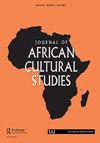革命性的母性
IF 0.9
2区 社会学
Q2 CULTURAL STUDIES
引用次数: 0
摘要
* Oyěwùmí, Obioma Nnaemeka, Nkiru Nzegwu和Filomina Chioma Steady撰写了重要的作品,认为母性需要超越西方女权主义作品中经常出现的二分法(压迫性制度或创造性和生成性活动)来理解。这些非洲学者的工作突出了前殖民时期的知识,以解决非洲大陆(后)殖民时期的性别关系。他们的理论、认知和方法论方法表明,这些知识分子在政治上致力于对一些西方女权主义者投资的、有时居高临下的全球姐妹情谊话语提出问题。非洲女权主义学者反对20世纪70年代和80年代的一种特殊意识形态,这种意识形态将母性视为由父权制建立的压迫性制度。他们的作品质疑了那些激进女权主义,这些激进女权主义决心通过Nnaemeka(1997,5)所说的“撤离哲学”将女性从母性中“解放”出来。她们挑战了非洲妇女不可避免地屈从于男人的陈规定型观念,她们的生活仅限于照顾她们被迫生下的孩子。Amadiume驳斥了这一范式,声称母性在文化上被认为是一个独立的单位(2005,93)。在其他地方,她认为母性是神圣的,充满了精神和神话的力量,赋予了女性权威(Amadiume 1987;1997)。Oyěwùmí(1997年)在一项重要的干预行动中对驯化叙述提出了质疑,并以尼日利亚妇女为例,她们的社会经济现实不允许母亲被驯化。相反,她认为“约鲁巴人对母性的部分定义是母亲必须在物质上供养子女”(Oyěwùmí 1997,73)。在妇女必须抚养子女的情况下,驯化的叙述与母亲必须有可能参与各种活动(如贸易)的事实相矛盾(Oyěwùmí 1997, 97)。遵循同样的论点,Steady将母性作为领导力的来源,具有孕育国家和使国家人性化的能力(Steady 2011)。在这样做的过程中,她通过强调母亲的社会政治、精神和经济参与,将女性贬低为受害者的元叙事边缘化。Nzegwu(2004)写了一篇关于母性如何作为一种强大的工具来对抗来自国家的威胁力量的文章。在她最近的作品中,她将这些强大的女性称为公众母亲,她们与威胁要没收女性繁荣市场的国家当局对抗。妇女们的反抗引起了反响本文章由计算机程序翻译,如有差异,请以英文原文为准。
Revolutionary Mothering
́ Oyěwùmí, Obioma Nnaemeka, Nkiru Nzegwu and Filomina Chioma Steady have written important works arguing that motherhood needs to be understood beyond the dichotomy (oppressive institution or creative and generative activity) often presented in Western feminist writings. The work of these African scholars foregrounds precolonial knowledge to grapple with (post)colonial gender relations on the continent. Their theoretical, epistemic and methodological approaches demonstrate that these intellectuals were politically committed to problematising the sometimes condescending discourses of global sisterhood in which some Western feminists were invested. African feminist scholars were writing against a particular ideology of the 1970s and 1980s that singled out motherhood as an oppressive institution built by patriarchy. Their work interrogated those strands of radical feminism determined to “emancipate” women from motherhood through what Nnaemeka (1997, 5) called a philosophy of evacuation. They challenged the stereotypical view that African women are inevitably subjugated to men and their lives confined to mothering the children that they were forced to birth. Amadiume refutes this paradigm by asserting that motherhood is culturally recognised as an autonomous unit (2005, 93). Elsewhere, she argues that motherhood is sacred and imbued with spiritual and mythological might which gives women authority (Amadiume 1987; 1997). In an important intervention, Oyěwùmí (1997) contested the domestication narrative, citing the example of Nigerian women whose socio-economic realities did not make it possible for mothers to be domesticated. Instead, she argues that “part of the Yoruba definition of motherhood was that mothers must provide for their children materially” (Oyěwùmí 1997, 73). In a situation where women have to provide for their children, the narrative of domestication contradicts the fact that mothers must have the possibility to be involved in various activities such as trade (Oyěwùmí 1997, 97). Following the same line of argument, Steady discusses motherhood as a source of leadership with the capacity to birth the nation and to humanise the state (Steady 2011). In so doing, she sidelines the meta-narrative that reduces womanhood to victimhood by emphasising mothers’ socio-political, spiritual and economic engagement. Nzegwu (2004) has written on how motherhood has been deployed as a powerful instrument against threatening powers such as those coming from the state. In her more recent work, she refers to these powerful women as public mothers who confronted the state authorities that threatened to confiscate the women’s thriving market. The women’s resistance drew its
求助全文
通过发布文献求助,成功后即可免费获取论文全文。
去求助
来源期刊

Journal of African Cultural Studies
Multiple-
CiteScore
1.70
自引率
10.00%
发文量
13
期刊介绍:
The Journal of African Cultural Studies publishes leading scholarship on African culture from inside and outside Africa, with a special commitment to Africa-based authors and to African languages. Our editorial policy encourages an interdisciplinary approach, involving humanities, including environmental humanities. The journal focuses on dimensions of African culture, performance arts, visual arts, music, cinema, the role of the media, the relationship between culture and power, as well as issues within such fields as popular culture in Africa, sociolinguistic topics of cultural interest, and culture and gender. We welcome in particular articles that show evidence of understanding life on the ground, and that demonstrate local knowledge and linguistic competence. We do not publish articles that offer mostly textual analyses of cultural products like novels and films, nor articles that are mostly historical or those based primarily on secondary (such as digital and library) sources. The journal has evolved from the journal African Languages and Cultures, founded in 1988 in the Department of the Languages and Cultures of Africa at the School of Oriental and African Studies, London. From 2019, it is published in association with the International African Institute, London. Journal of African Cultural Studies publishes original research articles. The journal also publishes an occasional Contemporary Conversations section, in which authors respond to current issues. The section has included reviews, interviews and invited response or position papers. We welcome proposals for future Contemporary Conversations themes.
 求助内容:
求助内容: 应助结果提醒方式:
应助结果提醒方式:


